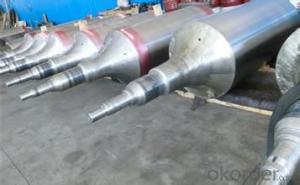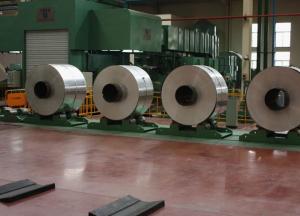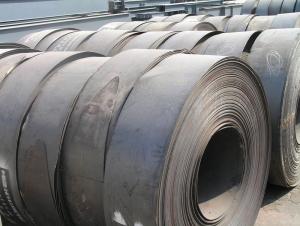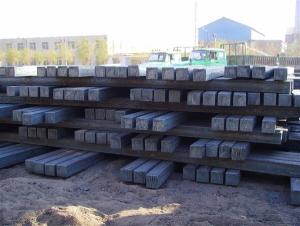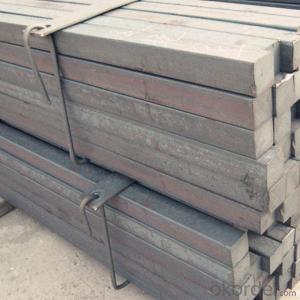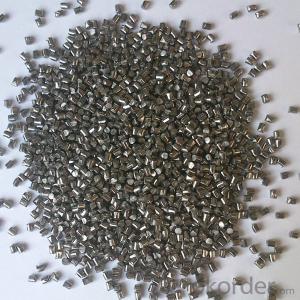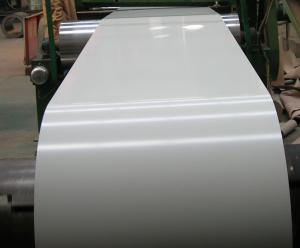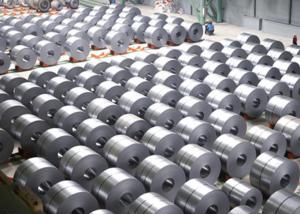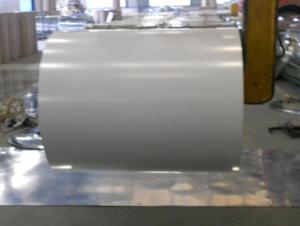Centrifugal Casting Heat Resistant Furnace Roll 2015
- Loading Port:
- Tianjin
- Payment Terms:
- TT OR LC
- Min Order Qty:
- 1000 PCS
- Supply Capability:
- 10000 PCS/month
OKorder Service Pledge
OKorder Financial Service
You Might Also Like
Quick Details
| Condition: | New | Type: | Other | Usage: | Heat Treatment Furnace |
| Place of Origin: | Brand Name: | Model Number: | Furnace roller | ||
| Application: | Heat treatment furnace |
Packaging & Delivery
| Packaging Detail: | plywood composited with steel box, seaworthy package |
| Delivery Detail: | 2-4month |
Specifications
furnace roller:
1. made of centrifugall casting and sand casting
2.high temperature resistant
Product Description
Furnace rollers used in CAL, CGL and heat treatment industry etc.
Scope: high temperature or low temperature's furnace roller inside of furnace
1: O.D.: such as: 685mm ,800 mm ,900 mm, 1000mm,1100mm ,1200mm,1300mm, 1350mm, 1400mm,1500mm,1600mm,etc
2: Material: stainless steel of SUS304, HK40,KHR12C, KHR11C etc,
3: Centrifugal casting of body, sand casting of cone, outsourced shaft or casting.
4: With wear-resistant coating or corrosion resistant coating sprayed in the surface
5: Inspection:
a: Chemical composition test by spectrometer during smelting;
b: Inside surface boring or not as per requirements;
c PT test;
Packaging & Shipping
Plywood composite with steel box ,seaworthy package
- Q:How is steel rebar cut and bent for specific construction needs?
- Steel rebar is cut and bent for specific construction needs using specialized machinery. The rebar is first measured and marked at the desired length, and then cut using hydraulic shears or abrasive cutting tools. Once cut, the rebar is placed in a bending machine that applies pressure to create the required shape, such as angles or curves. This process ensures that the steel rebar is tailored to meet the specific construction requirements, providing strength and reinforcement to the structure being built.
- Q:How is steel used in the production of industrial boilers and pressure vessels?
- Steel is used in the production of industrial boilers and pressure vessels due to its high strength and durability. It provides a sturdy framework that can withstand high temperatures and pressures, ensuring the safety and efficiency of these equipment. Steel is also easily weldable, allowing for complex designs and customization in the manufacturing process. Additionally, its resistance to corrosion makes it a suitable material for handling various substances and prolongs the lifespan of the boilers and pressure vessels.
- Q:What are the different types of steel reinforcement meshes?
- There are several types of steel reinforcement meshes used in construction, including standard welded wire mesh, ladder mesh, truss mesh, and expanded metal mesh. Each type has its own specific design and application, providing reinforcement and stability to concrete structures in different ways.
- Q:What are the factors to consider when selecting the appropriate steel grade for welding?
- There are several factors to consider when selecting the appropriate steel grade for welding. Firstly, the intended application and the specific requirements of the project should be taken into account. This includes factors such as the desired strength, corrosion resistance, and toughness of the welded joint. Additionally, the welding process itself plays a crucial role in the selection of steel grade. Different steel grades may have varying weldability and may require specific pre- and post-weld heat treatments. Furthermore, factors like cost, availability, and compatibility with other materials being used in the project should also be considered. Ultimately, a thorough understanding of these factors will help in choosing the most suitable steel grade for welding.
- Q:How is steel used in the production of electrical appliances and wiring?
- Steel is commonly used in the production of electrical appliances and wiring as it provides a strong and durable framework for various components. It is often used in the construction of appliance casings, motor housings, and brackets, ensuring the safety and protection of internal electrical components. Additionally, steel is used in electrical wiring as a support structure, providing strength and stability to carry and distribute electricity effectively.
- Q:How is steel used in the manufacturing of oil and gas pipelines?
- Steel is commonly used in the manufacturing of oil and gas pipelines due to its exceptional strength, durability, and resistance to corrosion. It is used to construct the main body of the pipeline, providing a reliable and safe transportation system for oil and gas resources. Additionally, steel can withstand high pressure and extreme temperatures, making it suitable for the demanding conditions often encountered in the oil and gas industry.
- Q:What are the applications of steel wire mesh in agricultural fencing?
- Steel wire mesh is commonly used in agricultural fencing due to its strength and durability. It provides a secure barrier to keep livestock contained and protects crops from animals. Additionally, steel wire mesh is resistant to weather conditions, making it suitable for outdoor use. It can also be used to create enclosures for poultry or small animals, ensuring their safety and preventing them from wandering off. Overall, steel wire mesh is an essential component of agricultural fencing, offering effective and long-lasting protection for both animals and crops.
- Q:How is steel used in the production of HVAC systems?
- Steel is commonly used in the production of HVAC systems due to its strength, durability, and resistance to corrosion. It is utilized to fabricate various components such as ductwork, pipes, and heat exchangers, ensuring the system's structural integrity and longevity.
- Q:What are the different types of steel products used in the manufacturing of gardening tools?
- Some of the different types of steel products used in the manufacturing of gardening tools include stainless steel, high-carbon steel, and tempered steel. These types of steel provide durability, strength, and resistance to corrosion, ensuring that the gardening tools can withstand various weather conditions and heavy usage.
- Q:What are the environmental impacts of producing steel products?
- The environmental impacts of producing steel products include emissions of greenhouse gases, such as carbon dioxide, during the iron and steel production process. Steel production also generates air pollutants, including sulfur dioxide, nitrogen oxide, and particulate matter. Additionally, the extraction of raw materials for steel production can lead to habitat destruction and deforestation. The steel industry also consumes large amounts of water and energy, contributing to resource depletion and potential water and air pollution. Overall, the production of steel products has significant environmental consequences that require sustainable practices and mitigation measures.
1. Manufacturer Overview |
|
|---|---|
| Location | |
| Year Established | |
| Annual Output Value | |
| Main Markets | |
| Company Certifications | |
2. Manufacturer Certificates |
|
|---|---|
| a) Certification Name | |
| Range | |
| Reference | |
| Validity Period | |
3. Manufacturer Capability |
|
|---|---|
| a)Trade Capacity | |
| Nearest Port | |
| Export Percentage | |
| No.of Employees in Trade Department | |
| Language Spoken: | |
| b)Factory Information | |
| Factory Size: | |
| No. of Production Lines | |
| Contract Manufacturing | |
| Product Price Range | |
Send your message to us
Centrifugal Casting Heat Resistant Furnace Roll 2015
- Loading Port:
- Tianjin
- Payment Terms:
- TT OR LC
- Min Order Qty:
- 1000 PCS
- Supply Capability:
- 10000 PCS/month
OKorder Service Pledge
OKorder Financial Service
Similar products
New products
Hot products
Related keywords
